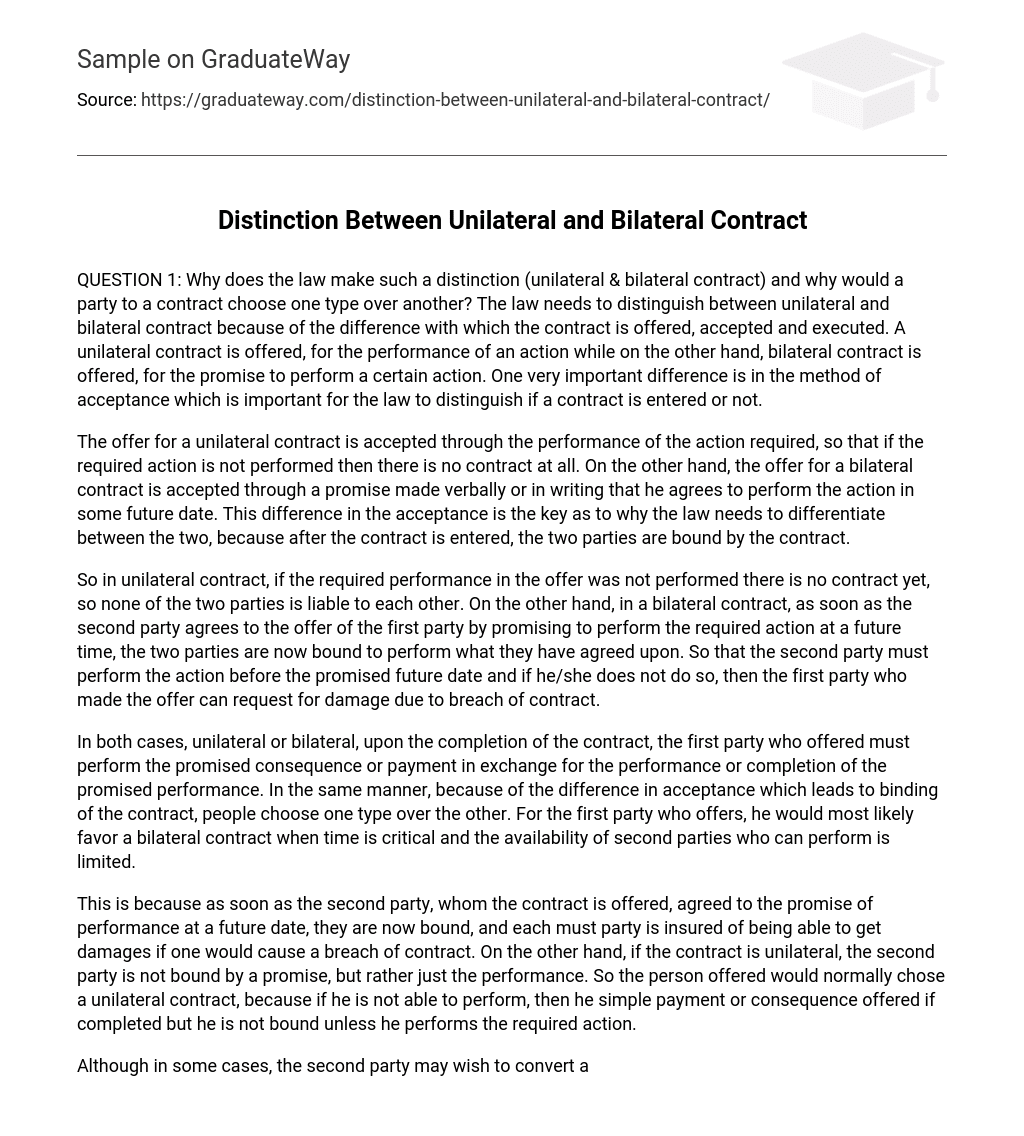QUESTION 1: Why does the law make such a distinction (unilateral & bilateral contract) and why would a party to a contract choose one type over another? The law needs to distinguish between unilateral and bilateral contract because of the difference with which the contract is offered, accepted and executed. A unilateral contract is offered, for the performance of an action while on the other hand, bilateral contract is offered, for the promise to perform a certain action. One very important difference is in the method of acceptance which is important for the law to distinguish if a contract is entered or not.
The offer for a unilateral contract is accepted through the performance of the action required, so that if the required action is not performed then there is no contract at all. On the other hand, the offer for a bilateral contract is accepted through a promise made verbally or in writing that he agrees to perform the action in some future date. This difference in the acceptance is the key as to why the law needs to differentiate between the two, because after the contract is entered, the two parties are bound by the contract.
So in unilateral contract, if the required performance in the offer was not performed there is no contract yet, so none of the two parties is liable to each other. On the other hand, in a bilateral contract, as soon as the second party agrees to the offer of the first party by promising to perform the required action at a future time, the two parties are now bound to perform what they have agreed upon. So that the second party must perform the action before the promised future date and if he/she does not do so, then the first party who made the offer can request for damage due to breach of contract.
In both cases, unilateral or bilateral, upon the completion of the contract, the first party who offered must perform the promised consequence or payment in exchange for the performance or completion of the promised performance. In the same manner, because of the difference in acceptance which leads to binding of the contract, people choose one type over the other. For the first party who offers, he would most likely favor a bilateral contract when time is critical and the availability of second parties who can perform is limited.
This is because as soon as the second party, whom the contract is offered, agreed to the promise of performance at a future date, they are now bound, and each must party is insured of being able to get damages if one would cause a breach of contract. On the other hand, if the contract is unilateral, the second party is not bound by a promise, but rather just the performance. So the person offered would normally chose a unilateral contract, because if he is not able to perform, then he simple payment or consequence offered if completed but he is not bound unless he performs the required action.
Although in some cases, the second party may wish to convert a unilateral contract to bilateral contract to insure that he gets the contract, because while he/she has not performed the action required by the first party for a unilateral contract, the first party who offered is also not bound therefore he has the flexibility to give it to another person. This is normally what happens if the second party is in need of the contract.





